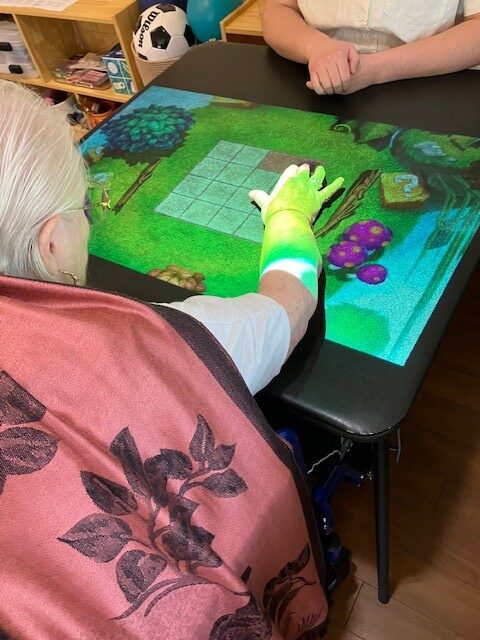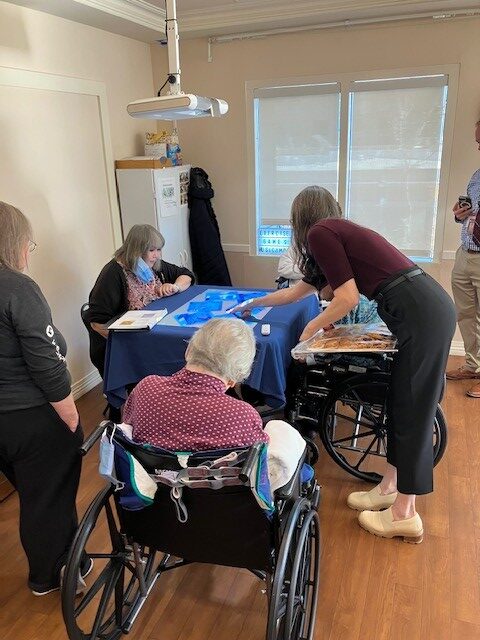The following was written by Katie Butterworth recounting her Samuel Merritt University Occupational Therapy Capstone experience with Front Porch
At Front Porch, I implemented a video game-based program to promote social participation and physical activity in older adults using Obie. The program involved weekly hour-long sessions, step-by-step instructional posters, and structured pre- and post-game discussions to encourage interaction and reflection.
The initial session faced challenges with no participants due to poor scheduling and limited promotion. Adjustments to session timing and improved outreach helped increase attendance. However, early sessions also faced technical issues with the Obie console, requiring flexibility and alternative engagement strategies such as icebreakers and group discussions.
Over time, resident participation stabilized, though typically limited to one participant per session. Activities were adapted based on physical and cognitive abilities, and favorite games like card matching and travel-themed activities helped boost engagement. Some residents faced challenges such as limited range of motion or confusion, but modifications to setup—like adjusting table height and further instruction of the game—led to noticeable improvements in comfort and participation.
Overall, the Obie games fostered social participation, movement, and cognitive engagement, especially through conversations sparked by gameplay. The experience highlighted the importance of adaptability, tailored support, and thoughtful planning in creating inclusive and meaningful activities for older adults.
However, several challenges emerged, including scheduling difficulties, limited funding, technical issues, and physical or cognitive limitations of participants. Efficiency would improve with direct communication with leadership. Residents, mostly from independent living and over age 90, needed significant guidance to learn and feel confident using the technology. Some were hesitant to participate due to embarrassment or uncertainty.
One standout participant showed measurable improvement over three weeks, gaining independence with the console and increasing her engagement—highlighting the benefit of consistent exposure. Greater continuity with participants could improve both comfort and outcomes.
Working with Obie shifted my approach from traditional instruction to a more interactive, engagement-based model, emphasizing clear communication and meaningful experiences to boost motivation and quality of life.

Future improvements for the Obie system should focus on several key areas to enhance its effectiveness and accessibility. Conducting long-term research with larger participant groups would provide more comprehensive data on the impact of Obie games, allowing for
better-informed program development. Additionally, upgrading the software and improving motion detection capabilities would result in smoother, more responsive gameplay, reducing frustration for users.
Lastly, relocating the console to a quieter, low-light environment and improving the projection surface—such as adding a tablecloth—would enhance visibility and overall user experience, making the games more engaging and easier to navigate.
In professional practice as an occupational therapist, Obie will be used as an intervention for older adults with low motivation for physical activity or socialization. Despite some initial confusion, most participants enjoyed the games, which helped improve mood and encourage movement. Obie is seen as a valuable tool for supporting overall well being and physical activity in aging populations.

My time at Front Porch was a truly rewarding experience. I had the privilege of working with exceptional staff and engaging with the residents. Thank you for the opportunity to complete my capstone project with Front Porch!

